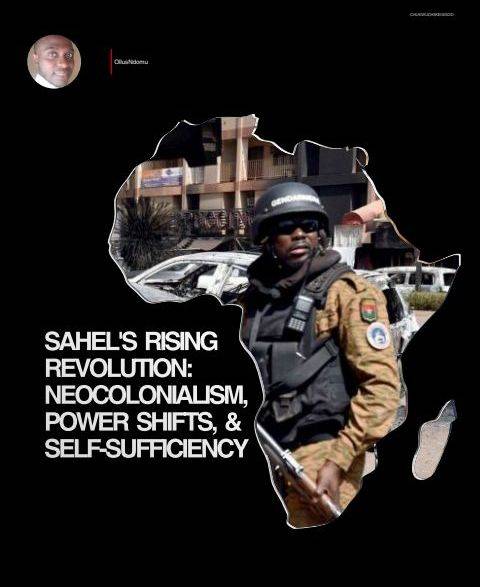By Ollus Ndomu
The latest military coup in the Sahel region, Niger, has ignited global condemnation, highlighting a troubling pattern of coups in this part of Africa, the latest being the tenth since 2008. Notable countries including Burkina Faso (2014, 2015, 2022), Mali (2012, 2020, 2021), Mauritania (2008), Gambia (2014), and Guinea (2021) have all experienced these upheavals, revealing a complex interplay between Western influence, neocolonialism, and power struggles. Many of these incidents have ties to United States Africa Command (AFRICOM) military training, raising questions about the extent of neocolonial aggression and whether these events signify a long-game maneuver between imperial powers.
To fully grasp the ongoing dynamics, it is important to deeply look into the concepts of imperialism and neo-colonialism. Lenin’s definition of imperialism as the “monopoly stage of capitalism” and Kwame Nkrumah’s observation that neo-colonial states appear independent while influenced externally underscore the economic manipulation faced by these nations. Stemming from centuries of European colonialism and exploitation, the 1885 Berlin Conference solidified political and economic control over Africa, depriving local voices of sovereignty. The consequential export of wealth to imperial cores further entrenched underdevelopment, with multinational corporations maintaining influence long after the mid-20th century independence movements.
France stands out as a towering colonial power, implicated in the assassination of 22 African leaders since 1963. The suppression of revolutions in Algeria and Burkina Faso, epitomized by the tragic fate of Thomas Sankara, exposes the brutal legacy of French colonialism. The CFA Franc, a tool of neocolonial control, further entrenched France’s grip on Francophone African nations. This currency model, pegged to the French franc and later the euro, hindered domestic and export potential, perpetuating exploitation.
However, recent decades have witnessed seismic shifts in geopolitics and class dynamics. As the US ascended as a global hegemon, conflicts between imperial powers led to complex interactions. AFRICOM’s presence across Africa, with 29 known military bases, raised tensions as France maintained a smaller footprint. After interventions in Libya and West Asia, extremist groups like al-Qaeda emerged in the Sahel, justifying Western military involvement. Mali’s Operation Barkhane and France’s failure to contain extremism marked a turning point.
Burkina Faso and Mali’s recent actions exemplify defiance against neocolonialism. Rejecting the CFA Franc, expelling French forces, and engaging with perceived adversaries of Western imperialism signify a departure from previous complacency. Expressing solidarity with Nicaragua and rejecting imperialist control, these nations are challenging the status quo. Niger’s recent coup faces opposition from France and the US, indicating a potential shift towards a more self-sufficient Africa. Russian aid and debt forgiveness offer an alternative to Western influence.
The emergence of new leadership with AFRICOM training suggests a deliberate choice to resist neocolonial control. These leaders, such as Assimi Goita (Mali), Ibrahim Traore (Burkina Faso), and Abdourahamane Tchiani (Niger), demonstrate a different direction. Rejecting Western dominance and advocating for self-sufficiency, they signal a new phase of resistance. Mao Zedong’s assertion that any anti-imperialist movement becomes part of a larger proletarian-socialist world revolution resonates in this context.
While exploring alternatives to Western influence, Africa must also navigate the potential pitfalls of growing Russian presence on the continent. This newfound alliance, though offering relief from neocolonialism, may bring its own set of challenges. Balancing multiple foreign actors’ interests requires careful diplomacy and consideration of the continent’s long-term stability.
Ultimately, Africa’s path to resolution lies within itself. The Sahel’s revolutionary potential, long suppressed, is experiencing a resurgence. Years of oppression have fueled a boiling point, intensified by shifting geopolitical dynamics. As the people rally behind these new revolutionaries, the question remains whether the Sahel will break free from neocolonial chains or face further repression. With coups that defy imperialist norms and prioritize sovereignty, the future of the Sahel hangs in the balance. By fostering self-sufficiency, fostering regional cooperation, and embracing homegrown solutions, Africa can pave the way towards lasting progress and independence



All reactions:
11


